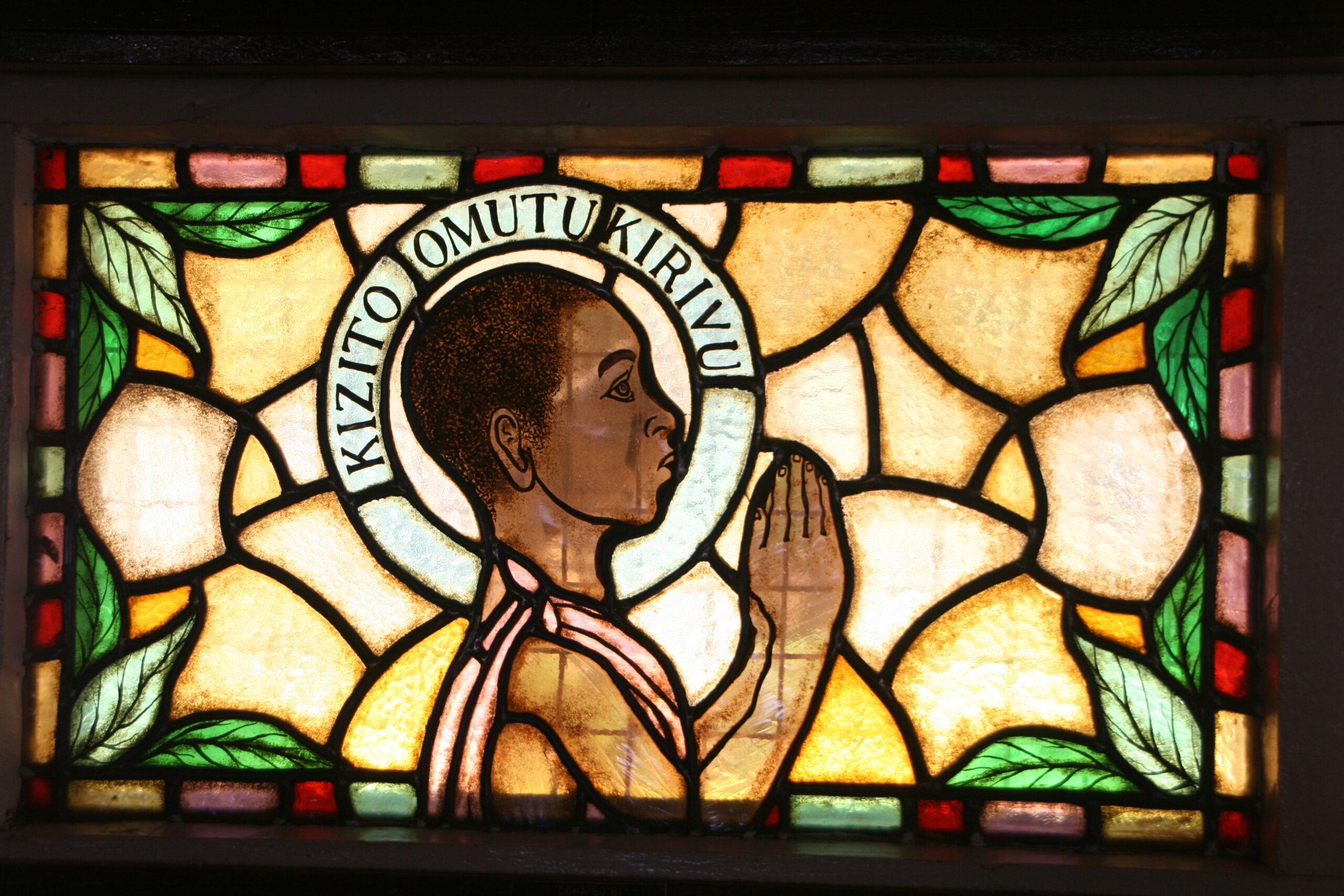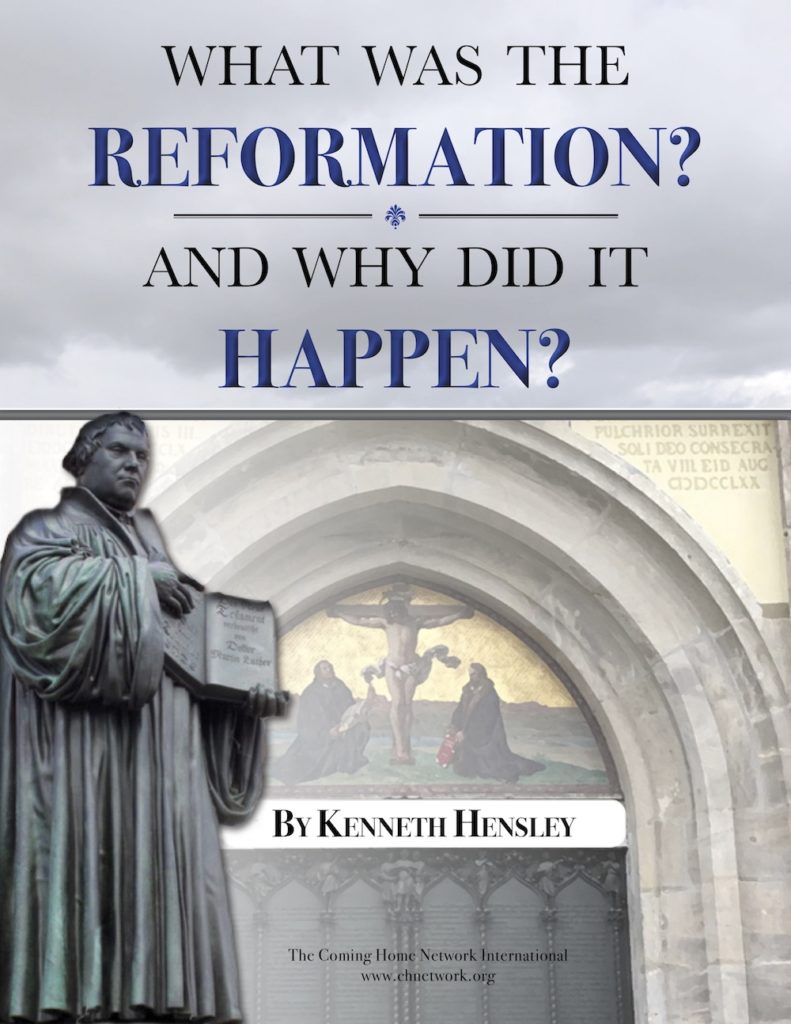
Photo by Rsk6400 \ Creative Commons Copyright
*****
The story of the Ugandan Martyrs is a powerful account of heroic faith in the face of persecution. All of them were young men, some of them teenagers. And all of them knew that their conversion to the Catholic faith would likely cost them their lives.
In 1879, the king of Buganda, Kabaka Mukabya, invited French Catholic missionaries into his kingdom. He had no interest in Christianity himself; he was more interested in the educational opportunities the missionaries might bring. What the Kabaka did not expect was that the message of the Gospel would have such a powerful impact among his people.
When Mukabya died, and his son, Mwanga, claimed the throne, he allowed the missionaries to continue their work, but he quickly became angry with the way that the conversions were affecting his royal court. Mwanga wanted the young men and boys who served in his court to submit themselves to immoral acts with him, and because of their newfound faith, these young converts refused to participate.
The head steward of the palace, a 25-year old convert named Joseph Mukasa Balikuddembe, pleaded with the king to not force these acts upon his pages and servants. In response, the furious Mwanga had Joseph beheaded, and his body burned.
Witnessing this martyrdom, a young catechumen named Charles Lwanga, who was in charge of some of the royal pages, felt compelled to approach the missionaries, from whom he urgently requested and received Baptism, despite having seen one of his own friends and fellow court attendants die that very day. St. Charles Lwanga was baptized on the same day that St. Joseph Mukasa was martyred: November 15th, 1885.
Mwanga’s attempt to intimidate through violence was inffective; even more young Ugandans from his court sought catechesis and baptism. Christian teachings against sexual violence, polgyamy, and inhumane treatment of prisoners only made Mwanga more and more angry with these new Christians. The tide was turning toward the Gospel in his kingdom, and he chose to act swiftly and decisively against it.
On May 26th, 1886, Charles Lwanga, who had only himself been baptized a few months earlier, baptized a group of young pages, including a boy named Kizito, who was only 14. Later that day, Mwanga returned to his compound after an unsuccessful hunting trip, and looking for the attendants of his royal court, found that many of them had left to go pray together. Outraged, Mwanga locked down the palace, summoned all his pages, and commanded each of them to admit whether or not they were Christians. Those who were, answered in the affirmative, including the 14 year-old Kizito, who had been baptized only hours before.
Mwanga condemned them all to death. The young men were tied together and marched 37 miles to a wooded area. As they marched, Charles Lwanga, who had catechized many of them, led them in prayer and reminded them of the catechism lessons he had taught them. Kizito, the youngest of the group, kept up their spirits with songs, and even laughter.
When they reached the execution site on June 3rd, the prisoners were rolled into straw mats and fed into a fire. In all, sixteen young convert men were martyred that day, including Charles Lwanga, who had baptized many of them. As he was being burned, Lwanga is reported to have said to his executioners, “It is as if you are pouring water on me. Please repent and become a Christian like me.”
In 1920, Pope Benedict XV formally beatified a large group of these martyrs who died under the reign of Kubaka Mwanga, and in October of 1964, Pope Paul VI canonized them. Their feast is celebrated on June 3rd, the date that Charles Lwanga and his companions were marched to the fire.
Catholics were not the only ones who suffered persecution under Mwanga’s rule; several Anglican converts were martyred as well. As with the Catholic martyrs of Uganda, the Anglican calendar also observes their feast on June 3rd.
The courage of Sts. Joseph Mukasa, Charles Lwanga, Kizito, and their companions is extraordinary. For all who follow Christ on the path of conversion, there is a cost. Sometimes that cost includes confusion or opposition from loved ones, or even having to start one’s life over from scratch. But the courage of the Ugandan Martyrs, who requested baptism knowing it would almost certainly cost them their lives, is a powerful witness to all of us who are praying for the strength to follow God’s will, however difficult it may seem to us in the moment.





